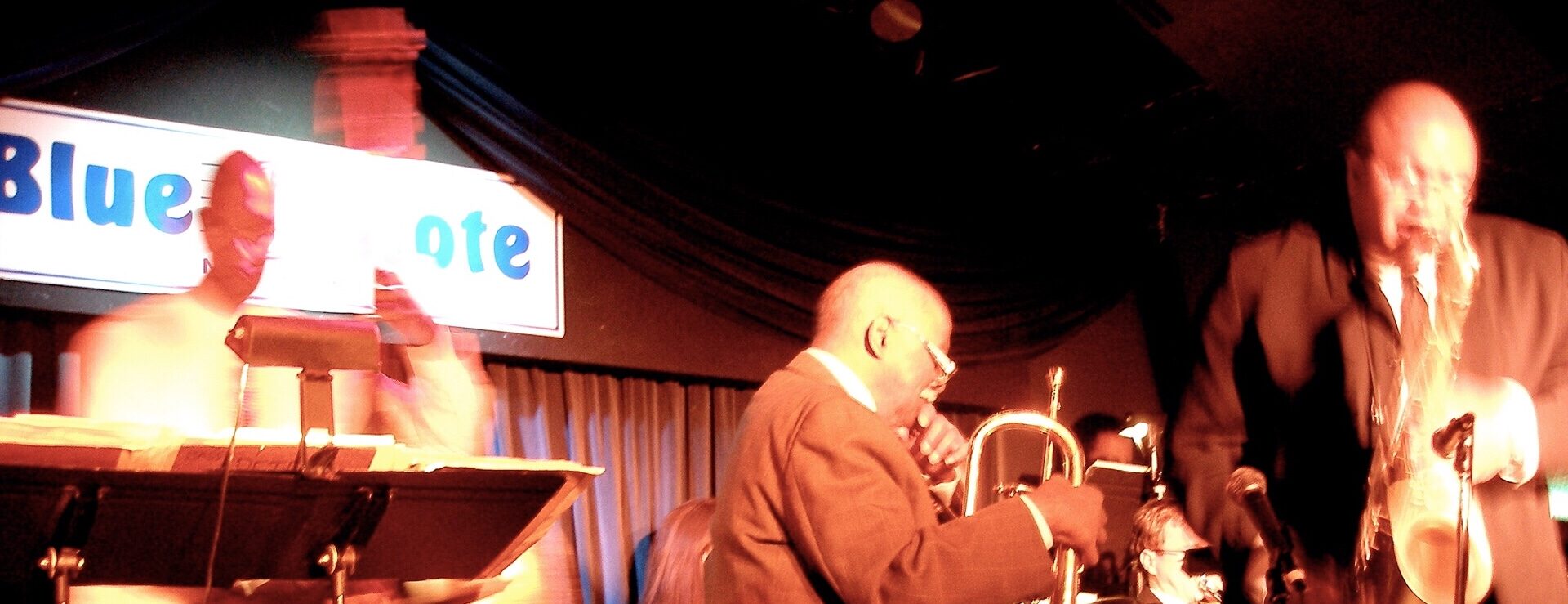On February 21, 2015, the world lost a great leader, social theorist, jazz artist, master of the trumpet and flugelhorn, my mentor and friend: Clark Terry.
Terry bestowed upon music an unfading contribution, one that everyone should encounter in his masterful craft that has impacted popular culture for generations. Each of us must critically engage his works across multiple forms of media, never resting on the simplicities of his entertainment but reverent to the cultural critiques and the personal humanity that he has always encoded in his sound. However, at this solemn time of remembrance, I am offering this expression of my personal experiences to contribute to an understanding of Clark as a great man.
It was my honor to be among the first few students to meet him at the beginning of his artist-in-residency in the Jazz Program at William Paterson University between 2002 and 2003. David Demsey, Marcus Mclaurine, and the late James Williams approached us to give support to Clark during our time as students, and we were thrilled by the opportunity.
I spent a lot of time with Clark in my small car, gently driving the then octogenarian to campus, various appointments, recording sessions, and performances across New York City and the tri-state area.
I also shared many times with Clark at his house in Haworth, NJ. He taught me his doodle phrasing and body huff techniques between changes of CD tracks, jokes, laughter, tastes of Drysack, straightforward encouragement, and endless stories about Ellington, Basie, and “Little Miles.”
He and his amazing wife Gwen, in such admirable togetherness, also instilled in me the value of love and the mutual respect that they had for each other, the preciousness of a black man’s creative talents, and the importance of the home as a safe space that both protects from the dangers of essentialist regimes of exploitation and celebrates the genuine social and individual recognitions of achievement, kindness and virtue.
Clark’s influence at that time and beyond helped me to make sense of the disjuncture between my learning challenges and my consistently deserved self-confidence.
He strategically furthered this nurture by graciously inviting me to join his big band that performed and recorded at the Bern Jazz Festival in Switzerland in 2004, several subsequent performances at Birdland and the Bluenote jazz clubs in New York City, and a studio recording with him and the late Louis Bellson in 2007.
I watched him motivate, inspire, and be sincere with musicians and audiences of different racial, ethnic, gendered, socioeconomic, generational, and nationalistic backgrounds, cognizant of only a few of his experiences in which he was refused of such treatment in certain moments in American history. I knew of the impact that he made to music education in the United States. I saw him make an already successful jazz performance program stronger. I heard him mumble syllables into music, and I heard him play the trumpet through tonality and toward a parlance of language. I continue to feel the goodness that he has brought into my life. May he forever rest in peace.
